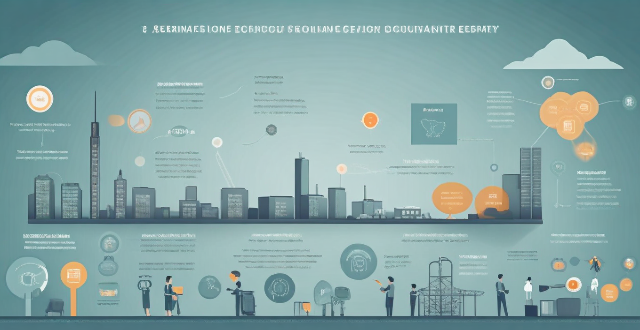Climate services support policy making for climate change by providing scientific evidence, assessing impacts and risks, informing mitigation strategies, enhancing capacity building, and facilitating international cooperation. They provide decision-makers with relevant, timely, and reliable information on the state of the climate system, its variability, and its future projections. This information is essential for developing effective policies to mitigate and adapt to the impacts of climate change.

How Can Climate Services Support Policy Making for Climate Change?
Climate services play a crucial role in supporting policy making for climate change. They provide decision-makers with relevant, timely, and reliable information on the state of the climate system, its variability, and its future projections. This information is essential for developing effective policies to mitigate and adapt to the impacts of climate change. In this article, we will discuss how climate services can support policy making for climate change.
1. Providing Scientific Evidence
Climate services provide scientific evidence that supports policy making by providing data and analysis on the current state of the climate system, its trends, and potential future scenarios. This evidence helps policymakers understand the severity of the problem and the need for urgent action. For example, climate services can provide information on sea level rise, extreme weather events, and changes in precipitation patterns, which can help policymakers develop strategies to protect coastal communities, improve water management, and enhance disaster preparedness.
2. Assessing Impacts and Risks
Climate services can assess the potential impacts of climate change on various sectors such as agriculture, health, energy, and infrastructure. This assessment helps policymakers identify the most vulnerable areas and populations and develop targeted adaptation measures. For instance, climate services can provide information on crop yields under different climate scenarios, which can help farmers adjust their planting schedules and crop selection to minimize losses due to changing weather patterns. Similarly, climate services can provide information on heat waves and air quality, which can help public health officials develop strategies to protect vulnerable populations from heat-related illnesses and respiratory problems.
3. Informing Mitigation Strategies
Climate services can inform mitigation strategies by providing information on greenhouse gas emissions and their sources. This information helps policymakers develop policies to reduce emissions and promote low-carbon development. For example, climate services can provide data on carbon dioxide emissions from transportation, industry, and buildings, which can help policymakers design policies to promote energy efficiency, renewable energy sources, and sustainable transportation options. Additionally, climate services can provide information on the cost-effectiveness of different mitigation strategies, which can help policymakers prioritize investments in areas where they can have the greatest impact.
4. Enhancing Capacity Building
Climate services can enhance capacity building by providing training and education to stakeholders involved in climate change policy making. This includes government officials, researchers, NGOs, and community groups. By improving their understanding of climate science, impacts, and risks, these stakeholders can make more informed decisions and contribute more effectively to the policy-making process. For example, climate services can provide training on how to use climate data and models to assess the vulnerability of specific regions or populations to climate change impacts. This training can help stakeholders develop more effective adaptation strategies and communicate their needs more effectively to policymakers.
5. Facilitating International Cooperation
Climate services can facilitate international cooperation by providing a platform for sharing knowledge and experiences among countries facing similar challenges related to climate change. This cooperation can lead to the development of joint policies and strategies that address global issues such as deforestation, ocean acidification, and transboundary air pollution. For example, climate services can provide data on the carbon sequestration capacity of different forest types, which can help countries develop joint strategies to protect forests and reduce carbon emissions. Similarly, climate services can provide information on the impacts of climate change on marine ecosystems, which can help countries develop joint strategies to protect fisheries and marine biodiversity.
In conclusion, climate services play a vital role in supporting policy making for climate change by providing scientific evidence, assessing impacts and risks, informing mitigation strategies, enhancing capacity building, and facilitating international cooperation. By leveraging the expertise of climate scientists and other stakeholders involved in climate change policy making, climate services can help develop effective policies that address the challenges posed by climate change and promote sustainable development.